Tips for Muscle Gain in Horses
Gaining muscle is directly related to how and how much your horse uses its body. No diet plan can “grow muscles” without the horse being actively in a training program that utilizes the diet and innate ability of equine athletes to increase muscle mass. In this section, we’ll focus on the dietary considerations for gaining specifically muscle, as each discipline has unique training and conditioning considerations to develop appropriate muscle to keep you horse fit, active, and safe in competition.
In gaining muscle, keep in mind first that your horse needs to be consuming enough calories to 1. maintain their non-muscle tissues, 2. maintain their current muscle tissue, 3. repair any muscle damage that naturally occurs with training, and finally 4. develop new/larger muscle tissue. This is the order that calories are prioritized toward, so developing new or larger muscles is the last impact seen with increasing feed for muscle growth. If your horse is currently underweight, meeting their caloric needs must be the first step before muscle growth can really begin. Even if the perfect amount of protein (the main component of muscle) is provided by the diet, if calories are below the horse’s needs, weight loss - and ultimately muscle loss - will result.
The other factor to keep at the forefront is that muscles don’t grow more because you’ve fed extra calories or extra amino acids (the building blocks of protein). Unlike carbohydrates and fats, if you feed your horse more amino acids/protein than your horse needs, there is no “storing” the amino acids/protein for later use. Feeding extra carbohydrates results in some increase in stored glycogen (energy for short term/fast movements/sprints), and feeding extra fat results in readily stored adipose (energy for long term/slower movements/endurance). Feeding extra amino acids/protein results in smelly dark urine, as excess protein can’t be stored and thus becomes a waste product that requires extra work for the kidneys, creates a dehydration risk, and negatively impacts blood pH and lactate levels (Graham-Thiers et al., 1999). Moral of this story is feeding the right amount of amino acids/protein for your horse’s activity level will help support muscle growth, but feeding extra amino acids/protein is not helpful when the horse doesn’t need them and can ultimately have negative side effects. On the flip side, too little protein – or even too little of key amino acids – will result in muscle loss, even when calories and all other dietary components are sufficient.
So how do we know how much amino acids/protein your horse needs to gain muscle? The National Research Council has established recommendations for protein and lysine (the amino acid of greatest focus in balancing protein needs for horses), with requirement needs increasing due to work level, sweat loss, pregnancy, lactation, and growth in young horses. Your Science Supplements nutritionist would be happy to evaluate your horse’s diet and protein needs to see if there are any imbalances, but the good news is that the average equine diet for the average working horse often meets and usually exceeds protein needs. Higher performing horses, late-term pregnancy, lactation, or overall lower quality diets are often when protein needs are not being met.
After determining protein needs and once we’re sure your horse has enough calorie intake to support muscle growth, the next most important component for horses to gain muscle is providing high quality proteins. High quality proteins are easily digested – especially in the foregut (stomach and small intestine) so that the amino acids are readily available to the horse. Research shows feed meals - like soybean meal, cottonseed meal, and linseed meal - have the highest protein digestibility of feeds, and concentrate grain feeds (such as corn, oats, and sorghum) have higher protein digestibility than what is found in forages (National Research Council, 2007). Of interesting note, when protein supplements and concentrates are added to a forage diet, the protein digestibility (and thus protein quality) increases for the forage portion (National Research Council, 2007). This is because adding protein sources to the diet affects stomach and small intestine motility and transit time, improving foregut protein digestion of the forage component of the diet.
The final feed factor to consider is the addition of a protein supplement to your horse’s diet. Different products are available in a wide range – often providing some combination of amino acids, carbohydrates for muscle energy, fats as a source of calories, and/or vitamins and minerals. In choosing a protein supplement, consider if you need to add in calories, vitamins, or minerals in this way or if you really just need supplementation pin pointed directly at muscle growth, recovery, and function. Even within only amino acid supplementation, be cautious of products that supply a very wide range of amino acids, as only 10 amino acids actually require some level of dietary input, and of these, the majority are well supplied by a balanced equine diet. Some products may provide a wide range of ingredients but at very low doses or provide amino acids readily provided by the horse’s current diet, when instead a concentrated delivery of key muscle growth support components is more appropriate for horses who are otherwise on a quality diet.
In conclusion, horses need enough calories to meet the energy demands of developing new muscle, supplying extra protein won’t result in additional muscle growth, under-supplying protein will limit or prevent muscle growth even when calorie needs are met, and feeds vary in their protein quality based on their digestibility. Horses who are not in work and using their muscles will not be able to develop additional muscle, so be sure your horse is both eating and working to gain muscle.
See our Muscle and Energy Category
Graham-Thiers PM, Kronfeld DS, Kline KA. Dietary protein moderates acid-base responses to repeated sprints. Equine Veterinary Journal Supplement. 1999;30:463-467
National Research Council. Nutrient Requirements of Horses: Sixth Revised Edition. 2007. Washington, DC: The National Academies Press

